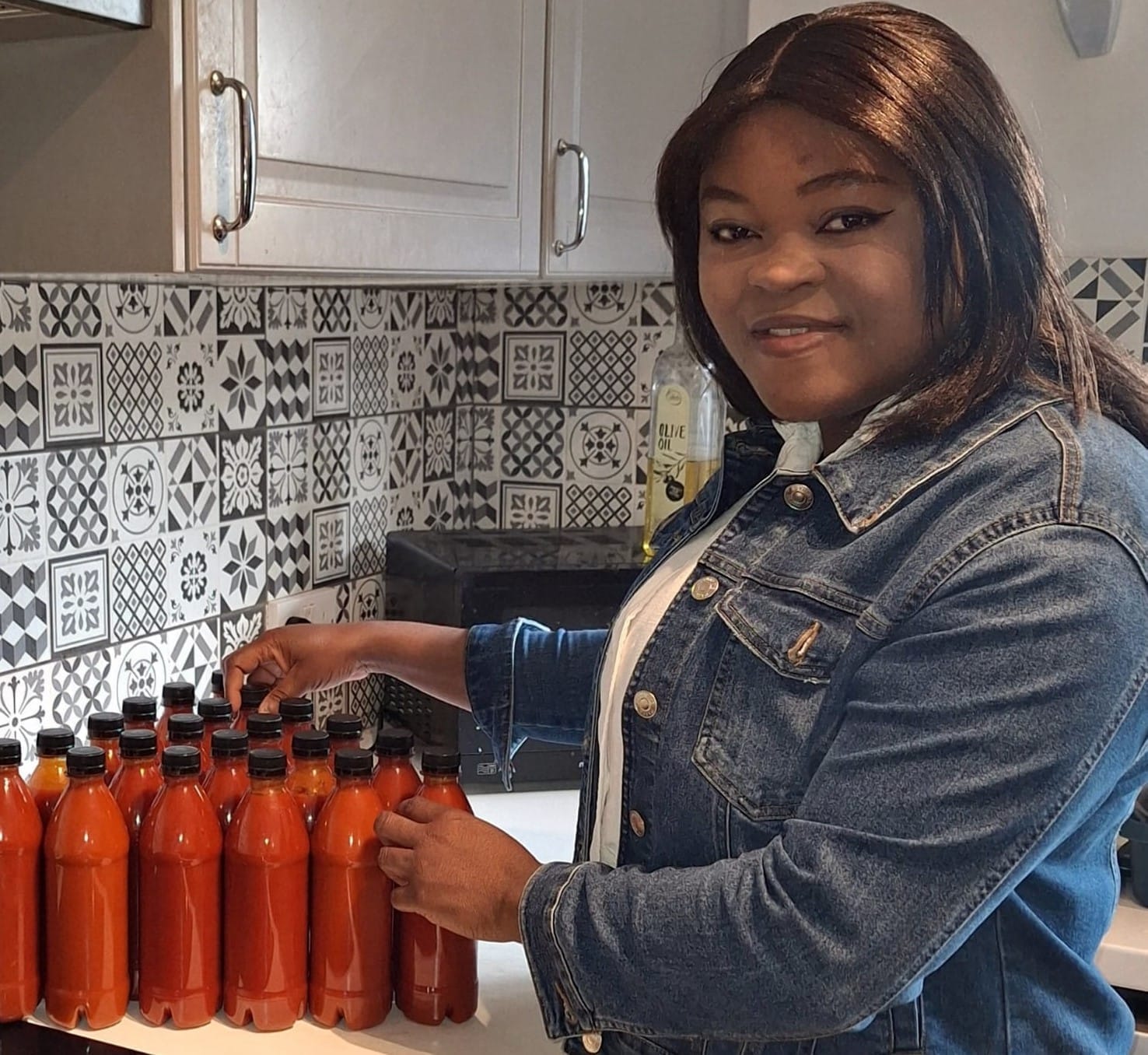Emotional Spending Patterns Among Black Immigrants in the UK
Introduction
Emotional spending among Black immigrants in the UK is not merely about personal financial choices; it is deeply intertwined with cultural identity, collective expectations, and diaspora realities. This pattern reflects a complex interplay of pride, obligation, nostalgia, status signaling, and social connection. Below is an expanded exploration of key categories where emotional spending manifests, accompanied by real-world examples.
Remittances and Family Support
Supporting family back home is viewed as a moral and cultural obligation rooted in reciprocity, filial duty, and collective uplift. Emotional spending is driven by guilt, pride, and the fear of being perceived as “forgetting your roots.”
Examples:
Sending monthly remittances to parents or siblings despite personal financial strain
Paying relatives’ school fees, hospital bills, or rent abroad
Contributing large sums to funerals or weddings, even without attending
Borrowing from payday lenders to meet urgent family demands
Sending luxury items or electronics to showcase success rather than sending cash
Clothing and Fashion
Fashion acts as a visible badge of success and status, especially in diaspora social spaces. Emotional spending stems from pressure to appear affluent, stylish, and “well abroad.”
Examples:
Purchasing designer shoes, handbags, or watches for specific events
Buying expensive aso-ebi (coordinated fabrics) for Nigerian or Ghanaian weddings
Ordering custom-made outfits from tailors back home with high shipping fees
Mimicking celebrity or influencer fashion purchases
Owning multiple “statement” outfits worn only once for photos
Parties and Celebrations
Social gatherings are markers of family legacy and community reputation. Spending lavishly reflects pride, social competition, and fulfilling cultural hospitality expectations.
Examples:
Hiring live bands from London or abroad for milestone events
Paying for “spraying” (throwing cash at celebrants) at parties
Renting luxury cars (e.g., Rolls Royce, G-Wagon) for wedding processions
Importing chefs or caterers specializing in home-country cuisine
Providing custom souvenirs (“party packs”) for each guest
Religious and Community Contributions
Churches, mosques, and cultural groups foster belonging and moral accountability. Emotional spending arises from faith commitments, social visibility, or peer pressure.
Examples:
Pledging large amounts during church fundraisers
Sowing frequent “seed offerings” expecting divine blessings
Paying levies for church anniversaries or building projects
Buying uniforms or costumes for choirs or cultural groups
Sponsoring others’ participation in religious pilgrimages (e.g., Israel, Mecca)
Beauty and Grooming
Beauty spending intersects cultural pride and societal expectations. Hair, skin, and grooming investments affirm confidence, respectability, and counter racialized stereotypes.
Examples:
Buying premium wigs monthly
Spending £100–£300 on hair braiding or protective styles
Purchasing imported skincare for melanin-rich skin
Getting microblading, eyelash extensions, or cosmetic enhancements
Following Black beauty influencers’ recommended makeup brands
Pledging large amounts during church fundraisers
Cars and Car Accessories
Cars symbolize success and upward mobility in many diaspora cultures. Emotional spending reflects peer comparison, self-reward, and image maintenance.
Examples:
Financing luxury cars with high-interest loans despite modest income
Installing expensive sound systems or LED lights
Paying for custom rims, leather interiors, or tinting purely for aesthetics
Upgrading car models to maintain peer status
Buying private number plates as status symbols
Gifts and Financial Support to Friends
Friendships in immigrant communities often imply mutual aid expectations. Emotional spending reflects loyalty, peer pressure, and fear of social fallout.
Examples:
Co-paying friends’ expenses on group holidays
Contributing to friends’ crowdfunding campaigns (funerals, weddings, startups)
Buying expensive gifts for bridal or baby showers to “keep up appearances”
Regularly covering friends’ restaurant bills
Repeatedly loaning money to the same friend out of obligation
Travel and “Going Home” Visits
Returning home is not just a trip—it is a symbolic performance of success. Emotional spending is driven by pride, cultural duty, and desire to impress.
Examples:
Booking first-class or business-class flights to “arrive big”
Paying extra luggage fees to carry gifts or goods
Buying new clothes or jewelry solely for wearing back home
Paying for extended family to attend homecoming events
Hosting feasts or parties to announce one’s return
Home Décor and Furnishings
A well-furnished home signals stability and prosperity to diaspora and visiting relatives. Emotional spending reflects pride and aspirational living.
Examples:
Buying designer furniture on credit
Importing ornate home décor from Nigeria, Ghana, or Jamaica
Commissioning bespoke wall art or sculptures
Investing in high-end kitchen appliances rarely used
Redecorating rooms before hosting guests from back home
Children’s Status and Opportunities
Many immigrants strive to “give their children better” to compensate for their hardships. Emotional spending stems from love, guilt, and proving good parenting.
Examples:
Buying children iPhones, tablets, or gaming consoles beyond need
Enrolling in elite extracurriculars (ballet, coding, private tutoring)
Paying for designer clothes, shoes, or haircuts for children
Throwing extravagant first birthdays or naming ceremonies
Hiring professional photographers for children’s photoshoots
Food and Dining
Food represents comfort, memory, and culture. Emotional spending reflects nostalgia, cultural pride, and sustaining traditions despite cost.
Examples:
Driving far to specific African or Caribbean food shops
Paying premium prices for imported spices or ingredients
Ordering frequent takeaways from African or Caribbean restaurants
Stockpiling perishable foods “just in case” of cravings
Hosting regular dinner parties with traditional meals
Lottery, Gambling, and Informal Investment Schemes
Hope for financial breakthrough or fast success drives speculative spending, sometimes community-influenced.
Examples:
Regularly buying lottery tickets despite financial constraints
Joining informal ponzi-style schemes within community groups
Buying raffle tickets under peer pressure at diaspora events
Participating in susu/ajo/esusu without clear understanding of risk
Betting on sports as a form of “escape spending”
Cultural Performances and Identity Affirmation
Spending to affirm cultural identity, especially during festivals, reflects pride and connection.
Examples:
Buying expensive tickets to Afrobeats, reggae, or soca (sokah) concerts
Spending heavily on dance costumes for community performances
Sponsoring cultural pageants or associations for visibility
Purchasing overpriced cultural paraphernalia (flags, art, instruments)
Hosting cultural workshops despite low turnout
Social Media and Personal Branding
Desire to curate an image of success leads to aesthetic-driven spending.
Examples:
Paying for professional photoshoots for Instagram milestones
Buying cameras, lighting, editing software “to start content creation”
Purchasing luxury goods solely for photo-ops
Renting Airbnb properties for content shoots
Dining at trendy spots for “foodie” photos despite financial strain
“Show-Off” Philanthropy and Public Giving
While giving is culturally valued, emotional spending occurs when generosity is tied to public perception.
Examples:
Publicly sponsoring events or family reunions for praise
Donating conspicuously at religious or community fundraiser
Sending more money home after peers boast of contributions
Paying strangers’ bills in public to appear generous
Publicly promising support then struggling to fulfill it
Closing Perspective
Emotional spending among Black immigrants in the UK transcends individual behavior; it serves social, emotional, and symbolic functions rooted in cultural identity and diaspora experiences. Any financial interventions must acknowledge these cultural realities and design
Join StandTall Community for free
Created with ©systeme.io


